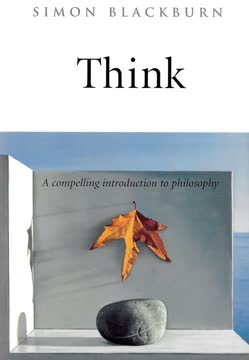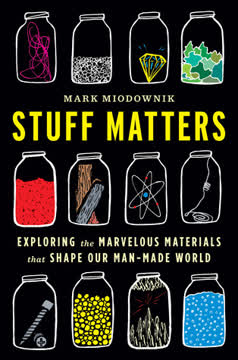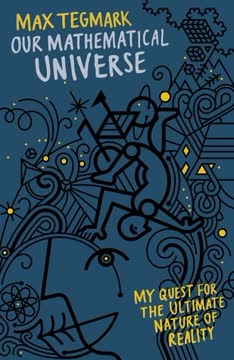Key Takeaways
1. Theories of Everything Fall Short: Embrace Complexity
The most surprising consequence of a visionary Theory of Everything is that it implies that on the grand scale the universe—including its origins and evolution—although extremely complicated, is not complex but in fact surprisingly simple, since it can be encoded in a limited number of equations.
Reductionism's Limits. The quest for a "Theory of Everything" that encapsulates all of reality in a few mathematical equations is a misleading and intellectually dangerous pursuit. While grand syntheses like Newton's laws and Maxwell's equations are valuable, they are incomplete. The universe, especially life, is not just complicated but complex, requiring concepts like information, emergence, and historical contingency.
Beyond Simple Equations. Complex adaptive systems, such as organisms, societies, and economies, cannot be fully described by a small set of equations. Their behavior emerges from the interactions of many individual agents, making precise predictions impossible. The search for a "Theory of Everything" should be complemented by a "Grand Unified Theory of Complexity."
Embrace the Mess. The universe, at its grandest scale, may be simple, but life on Earth is messy, diverse, and complex. We need to move beyond reductionism and embrace the concepts that help us understand these complex systems, even if they are not easily mathematized.
2. Unification is a Crypto-Religious Quest: Nature is Many, Not One
The scientific impulse to unify is crypto-religious.
Monotheism's Influence. The impulse to unify all of nature into a single principle is rooted in Western monotheism, where a single God is seen as the creator of all. This impulse drives the search for a "Theory of Everything," but nature itself seems to resist such a singular explanation.
Approximate Unifications. Even our most sacred unifications, like electromagnetism and the Standard Model of particle physics, are only approximations. Nature seems to be about the many, not the one. The search for simplicity is essential, but we should not confuse our models with reality.
Accept Imperfection. Instead of seeking a perfect, all-encompassing theory, we should focus on constructing approximate models that describe how nature works. The symmetries we find are only descriptions of what really goes on. Nature is out there doing its thing, and we should be content with catching a glimpse of its inner workings.
3. Simplicity is a Human Desideratum, Not Nature's Mandate
Compelling as the idea of simplicity is, there’s no guarantee that nature itself has as much interest in simplicity as those attempting to describe it.
Human Preference. Simplicity is a desirable quality in scientific theories, but it's a human preference, not a guarantee about the nature of reality. We seek to reduce complex phenomena to their components, but nature may not always be amenable to such reductions.
Emergent Properties. Biological entities, for example, cannot be fully explained except in terms of their emergent properties, which means in their full complexity. Reducing the length of a descriptive message may come at the cost of approximation.
Complexity Matters. While it's nice if everything turns out to be simple, some things may be better explained in their complexity. We should resist the urge to oversimplify and recognize that some systems may require complex descriptions.
4. The Universe is Not What You Think: It's a Multiverse
After a two-millennium run, the universe as observable cosmos is kaput.
Beyond the Observable. The idea of the universe as a single, observable entity is outdated. Our observations are limited by the finite time since the Big Bang, and the cosmos extends far beyond our observational horizon.
Infinite Realities. Cosmologists now believe that our observable universe is just a small part of an infinite multiverse, containing countless other "bubble universes" with different laws of physics. Quantum mechanics also suggests that the universe is continually splitting into multiple histories.
Multiplicity as Unity. Rather than seeing the multiverse as a problem, we should embrace it as an opportunity. The set of all locally finite things, which can be simulated on a computer, may contain all possible universes, including our own.
5. IQ is a Social Construct: Abilities are Domain-Specific
IQ is a general measure of socially acceptable categorization and reasoning skills.
No Task-General Adaptation. The concept of a general "Intelligence Quotient" (IQ) is flawed. Natural selection favors task-specific competencies, not a general measure of intelligence. There's no evidence that natural selection has ever favored a task-general adaptation.
Socially Acceptable Skills. IQ tests measure socially acceptable categorization and reasoning skills, not some basic cognitive capacity. The scoring system is designed to generate a normal distribution, which may vary across different societies.
Environment Matters. The debate over the heritability of IQ is acrimonious, but the mere fact of adoption reliably increases IQ, regardless of any correlation with biological parents. IQ is a specious rather than a natural kind.
6. Brain Plasticity is Overused: Change is Not Always Plasticity
When almost any change in neurons is characterized as plasticity, the term encompasses so much that it no longer conveys any useful information.
Meaningless Term. The term "brain plasticity" has become so widely applied that it has lost its meaning. It's used to describe almost any change in neuronal structure or function, rendering it largely uninformative.
Practice Effects. Many studies invoke brain plasticity as the underlying cause of modified behavioral states without direct evidence of neuronal changes. Improvements in performance with practice are often attributed to "remarkable" brain plasticity, which is just hype.
Brain Training Industry. The widespread use of "brain plasticity" has fueled the brain-training industry, which often makes unsubstantiated claims about improving cognitive function. While such activities may be beneficial, they should not be equated with "enhanced brain plasticity."
7. Retire the "Rocket Scientist": Science is Interconnected
“The rocket scientist” stands outside society, frozen on a higher plane.
Outdated Perceptions. The cliché of the "rocket scientist" perpetuates outdated public perceptions of science, divorcing it from personal experience and creating an artificial boundary between scientists and everyone else.
Interconnectedness. Contemporary science emphasizes diversity, complexity, relationships, and process. The real world is interconnected, and our societal structures should reflect this.
Policy Implications. Policy makers need to understand contemporary scientific principles to address global challenges. The "rocket scientist" cliché reinforces a paradigm of simplification and compartmentalization, which is at odds with the messages of contemporary science.
8. Individuality is an Illusion: We are Collective Properties
You may be a collective property arising from the close interactions of your constituents.
Quantum of Society. The notion of "individual" as a discrete, isolated unit is misleading. We are strongly influenced by our interactions with other humans and are part of a society. Our individuality is complicated by our social milieu.
Not Indivisible. We are not indivisible units but are constituted from cells, which are themselves constituted of atoms, which contain elementary particles. There are no indivisible units of matter, and everything is made of something else.
Microbiome Influence. We are not even entirely human, as we have 10 times more bacterial cells than human cells. Our microbiome plays a significant role in our digestion, mental states, and overall health. We are a collective property arising from the close interactions of our constituents.
9. Brain Size Doesn't Equal Intelligence: Reserve Capacity Matters
The key, of course, is programming: What really matters to cognitive performance isn’t so much the brain’s hardware as its onboard software.
Software Over Hardware. Brain volume does not determine cognitive capacity. What matters is the brain's onboard software, not its hardware. Smarter software doesn't need a bigger hardware base.
Cognitive Reserve. The human brain is larger than it needs to be to underpin our level of intelligence. The advantage of a big brain is that it provides a large amount of cognitive reserve, which can be called on if and when working parts get damaged or wear out.
Longevity Advantage. Big brains allow humans to retain their mental powers into old age, long after smaller-brained ancestors would have become incapacitated. This longevity allows humans to benefit from the presence of mentally sound grandparents and great-grandparents.
10. Time Before the Big Bang: The Universe is Not a First Moment
There is, however, a chance for science to answer these questions, and that’s if the Big Bang was not the first moment of time but a transition from an earlier era of the universe.
Big Bang's Two Meanings. The Big Bang has two meanings: the expansion of the universe from a hot, dense state and the hypothesis that it was the first moment of time. The latter is problematic because it leaves big questions about the universe unanswered.
Hawking-Penrose Theorem. The hypothesis that the Big Bang was the first moment of time is remarkably generic and unconstraining. It's consistent with an infinite number of possible states in which the universe might have begun.
Quantum Cosmology. Quantum cosmology models suggest that the Big Bang was not the first moment of time but a transition from an earlier era of the universe. This allows time to continue to exist before the Big Bang, deep into the past.
11. Entropy is Misplaced: Complexity is the Real Story
The greatest result of our expanding and evolving universe is its ever increasing complexity.
Entropy's Paradox. The second law of thermodynamics states that entropy always increases, leading to a state of thermal equilibrium. This implies that the universe must have a beginning and an end, which is difficult to accept.
Complexity and Low Entropy. The expanding universe has countless small pockets of extremely low entropy surrounded by vast areas of higher entropy. Complexity is synonymous with low entropy, and the universe is constantly creating order.
Rethinking Entropy. We cannot retire entropy, but we should rethink it. The universe may be timeless, and entropy may be conserved in some way. The universe may be the one and only possible perpetual-motion machine.
12. The Laws of Physics are Not Predetermined: They are Accidental
The laws of nature we measure may be totally accidental, local to our environment (namely, our universe), not prescribed with robustness by any universal principle, and by no means generic or required.
Accidental Laws. The laws of physics we measure may be accidental, local to our universe, and not prescribed by any universal principle. String theory and inflation suggest that there may be many different universes with different laws.
Environmental Science. Physics may become an environmental science, where the laws of nature are not preordained but are a result of cosmic accidents. The laws of physics in our universe may not reflect some underlying fundamental order.
Cosmic Accidents. We need to give up the notion that the laws of physics are predetermined. Our entire universe may be just another accident.
Last updated:
Review Summary
This Idea Must Die is a collection of short essays by scientists and thinkers proposing scientific ideas that should be retired. Readers found the concept intriguing but execution mixed. Many essays were thought-provoking, covering diverse fields from physics to psychology. However, the brevity and quantity of essays made for an exhausting read. Some found the technical language inaccessible, while others appreciated the challenging content. Overall, reviewers saw value in the book's premise of questioning established ideas, even if the format was not ideal for everyone.
Similar Books










Download PDF
Download EPUB
.epub digital book format is ideal for reading ebooks on phones, tablets, and e-readers.













